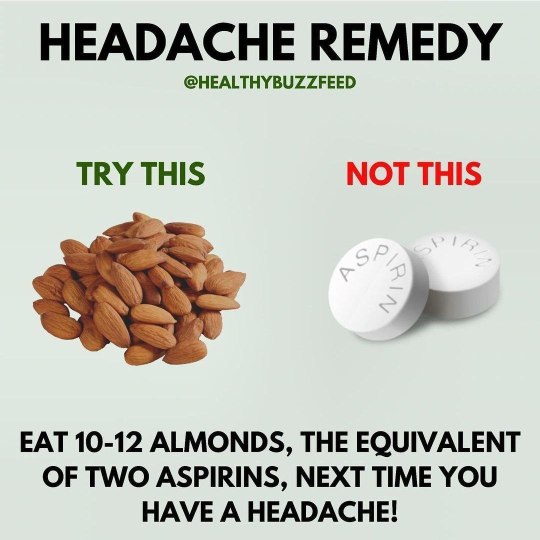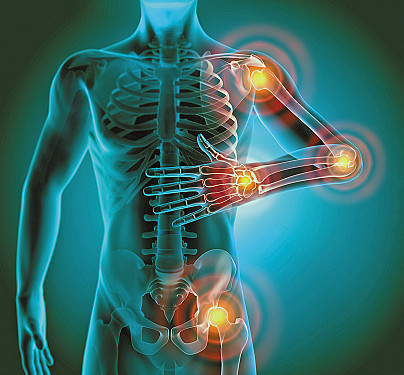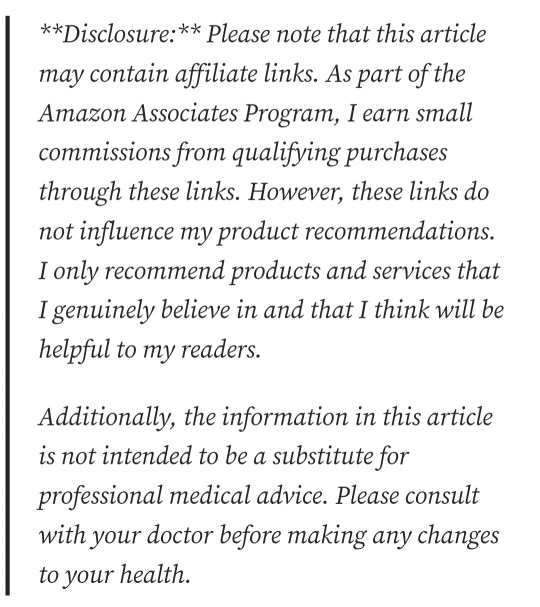#Remedial education
Text

Reflect Within, there are various types of remedial teaching methods tailored to individual learning needs. These include one-on-one tutoring, small group instruction, differentiated instruction, multisensory techniques, technology-integrated approaches, and collaborative problem-solving strategies aimed at addressing specific academic challenges effectively.
0 notes
Text
Meaningful Learning in Malay Language: Primary School Remedial Education
INTRODUCTION
In this age of globalization, the world community has received various changes influenced by the development of technology. Industry and education in a country will be affected because the services provided are for the improvement and change of a community or society that now receives technological skills. All information or info is shared with various technology mediums that can be…
View On WordPress
#Educational techniques#Effective learning methods#Language learning facilitation#Language skills development#Malay language learning#Meaningful learning strategies#Primary school education#Remedial education#Student engagement#Teaching Malay language
0 notes
Text

Many people say peroxide is beneficial, but here's what they don't say!
1. Destroying viruses: 3 drops of peroxide in each ear - and colds are gone! It also helps get rid of earwax.
2. Destroying germs: add 0.5 liters of peroxide to 3.5 liters of water and spray in the air to kill airborne bacteria.
3.Teeth whitening: 2 tsp water to 1 tsp peroxide, rinse your mouth after brushing your teeth.
4.Hair bleaching: use peroxide as a regular bleaching product.
5. For runny nose: 1 capful of peroxide to a glass of water, rinse your stuffy nose.
6. For toothache: mix coconut oil with peroxide and rinse your mouth.
- Barbara O'neill 🤔
#pay attention#educate yourselves#educate yourself#knowledge is power#reeducate yourself#reeducate yourselves#think about it#think for yourselves#think for yourself#do your homework#do some research#do your own research#ask yourself questions#question everything#barbara o'neill#health tips#for your health#natural remedies#hydrogen peroxide#you decide
2K notes
·
View notes
Text
Hmmm 🤔
#pay attention#educate yourself#educate yourselves#wake the fuck up#do your own research#do your homework#do some research#wake up#exposing the truth#knowledge is power#reeducate yourselves#ask yourself questions#question everything#natural remedies#what?#for your health#health tips#you decide
226 notes
·
View notes
Text


Inspired from @mixingartist
I decided to do day 1 of the prompt list using my FPE OC Mr Remedy
I drew him as a teen and a toddler
14 notes
·
View notes
Text

23 notes
·
View notes
Text

#herbs#plants#herbal remedies#relaxation#relax#organic farming#all natural#chamomile#lemon balm#passion flower#lavander#ashwagandha#diy ideas#made by me#made for you#made for others#the apothecary diaries#alchemical ascension#alchemy#creative inspiration#inspiration#creativity#self love#love#herb garden#nature#earth#entrepreneur#education#science
7 notes
·
View notes
Text
Everyone should send me asks about things that you think are true about deserts because there seem to be a lot of weird misconceptions and I know a lot of them, but absolutely send me stuff I’ll vet whether it’s true for some, all, or most deserts or if that’s not a Thing. And I’ll compile it into a publicly accessible doc as a sort of quick Q&A type thing for anyone who’s confused about deserts.
(This is because so many works of fiction seem to think that the Sahara is the only desert in the world) (btw the gobi desert also does that super intense temperature fluctuation thing)
#chaoticbuggybitchboy#desert#dilemma danger#<- yes im tagging this in the fandom bc if one more fic treats the Mojave like the Sahara imma explode#<- /lh I know that most people aren’t from there and really there’s not a huge emphasis about learning about deserts unless you live in one#this is an educational issue I’m attempting to remedy in my small sphere of influence because it’s irksome to me#and I just wanna be able to link a document of researched material for common misconceptions
2 notes
·
View notes
Text

ehe. eheheh.
#art#digital art#oc#oc art#oc drawing#orginal character#artwork#fundamental paper education#fundamental paper education OC#fpe oc#fpe#oc x canon#miss circle#fpe miss circle#mister remedy#somewhat suggestive#lycanloc art
2 notes
·
View notes
Text
The Philosophy of Deception
The philosophy of deception explores the ethical, epistemological, and psychological dimensions of falsehood, dishonesty, and manipulation in human communication and behavior. It delves into questions surrounding the nature of truth, the morality of deception, and the implications of deceit for individual autonomy, social relations, and the pursuit of knowledge. Here are some key aspects of the philosophy of deception:
Nature of Truth: Central to the philosophy of deception is the concept of truth and its relationship to falsehood. Philosophers debate whether truth is objective and absolute, or if it is relative and context-dependent. They also consider the role of perception, interpretation, and perspective in shaping our understanding of truth and the potential for deception to distort or conceal it.
Ethics of Deception: Philosophers examine the moral dimensions of deception, considering whether and under what circumstances it is permissible or justified to deceive others. Ethical theories such as utilitarianism, deontology, and virtue ethics offer different perspectives on the morality of lying, deception, and manipulation, weighing factors such as intention, consequences, and principles of honesty and integrity.
Types of Deception: The philosophy of deception categorizes different forms of deceit, including lying, misleading, withholding information, and manipulating perceptions or beliefs. Philosophers analyze the characteristics, motivations, and consequences of various types of deception, as well as their implications for trust, autonomy, and interpersonal relationships.
Epistemological Implications: Deception raises epistemological questions about the reliability of knowledge and the challenges of discerning truth from falsehood. Philosophers explore how deception undermines the epistemic trustworthiness of communication and evidence, complicating the quest for knowledge and understanding in fields such as science, law, and politics.
Self-Deception: A prominent topic in the philosophy of deception is self-deception, the process by which individuals deceive themselves about their own beliefs, desires, or motivations. Philosophers investigate the psychological mechanisms and cognitive biases that contribute to self-deception, as well as its implications for self-awareness, rationality, and personal identity.
Social and Political Deception: Deception is pervasive in social and political contexts, where individuals, groups, and institutions may engage in propaganda, misinformation, or manipulation to influence public opinion, gain power, or advance their interests. Philosophers analyze the ethical and political implications of deceptive practices in areas such as media, advertising, diplomacy, and governance.
Remedies and Responses: Philosophers consider strategies for detecting, preventing, and mitigating deception, including critical thinking skills, transparency, accountability mechanisms, and legal regulations. They also explore the role of education, media literacy, and ethical norms in fostering a culture of honesty, integrity, and trustworthiness.
Overall, the philosophy of deception illuminates the complex and multifaceted nature of falsehood and its impact on human thought, action, and society. By grappling with ethical dilemmas, epistemic challenges, and practical concerns related to deception, philosophers contribute to our understanding of truth, trust, and the ethical responsibilities of communicators and decision-makers.
#philosophy#epistemology#knowledge#learning#chatgpt#education#ethics#psychology#deception#Truth#Morality#Lying#Trust#Self-deception#Social deception#Political deception#Remedies#society#culture
3 notes
·
View notes
Text
WHEN WILL MY BAD LUCK END AS PER ASTROLOGY
QUESTION ASKED : When will my bad luck end? I am not able to focus on studies. My date of birth is ****
MY VIEW : Self-realization is the greatest remedy as you understood that you got defocused from your studies.
If one waits for astrological predictions and the end date of such then you are simply fooling your own self.
There is no miracle in astrology remedy that would transform you bad period into good period in split seconds of time. If one wait for such then they will waste their precious time of their education period.
Understanding and realizing one’s weaknesses and working on it is the remedy for it and not that one will wear any gemstone ring or enchant mantras and get rid of the bad period in a second.
I don’t mean that astrological remedies don’t work BUT the native need to understand that the working is very very slow and being a student, one doesn’t have that much time to wait for the results.
Astrology shows one the path and its up to the individual to work on that path and nothing is automatic in astrology and this is what I was trying to explain from the beginning.
So please be logic and seek astrological help for better use where one can know their path of success.
Here in the case of the native, realized that he / she is in wrong path and that will not lead to success. That itself is a prediction like astrology and so one don’t need further to get anything more out of Vedic astrology.
JUST WORKING ON TO FOCUS AND ELIMINATING WHAT IS DISTRACTING ONE FROM THE STUDIES IS THE KEY REMEDY WHICH THE NATIVE ALREADY HAVE WITH HIM BUT NOT REALIZING IT.
This same thing will be said by the astrologer with the references of the planet and will tell the same as I said. So why do one need to hear the same from astrologers.
Well if it is the matter of one’s choice then please go ahead . . . .
Whish you best in life ahead.

#education astrology#astrology#astrologer#vedic astrology#vedic astrologer#horoscopes#horoscope posts#horoscope readings#vedicastrology#horoscope#horoscope analysis#daily horoscope#daily astrology#remedies#kundli
4 notes
·
View notes
Text
Meaningful Learning in Malay Language: Primary School Remedial Education
INTRODUCTION
In this age of globalization, the world community has received various changes influenced by the development of technology. Industry and education in a country will be affected because the services provided are for the improvement and change of a community or society that now receives technological skills. All information or info is shared with various technology mediums that can be…
View On WordPress
#Educational techniques#Effective learning methods#Language learning facilitation#Language skills development#Malay language learning#Meaningful learning strategies#Primary school education#Remedial education#Student engagement#Teaching Malay language
0 notes
Text
War on natural remedies 1961 to 1975: funded by the AMA. Imagine being arrested for selling basil?! 🤔
#pay attention#educate yourselves#educate yourself#knowledge is power#reeducate yourself#reeducate yourselves#think about it#think for yourselves#think for yourself#do your homework#do some research#do your own research#ask yourself questions#question everything#war#natural remedies#hidden history#history lesson#history#news
1K notes
·
View notes
Text
I always like the thought of kayn being young for his appearance, being an early bloomer and hitting his growth spurts early, being treated like an adult before he's ready
#especially in modern I think that translates to not getting the support that someone his age needed#emotionally and just like. education wise. everyone thought he should have maturity he didn't#so he matured strangely. uneven.#I usually hc him as slightly younger than ezreal who's one of the younger adult champions#I think it makes his story more tragic too if he picks up rhaast when he's in his early 20s with so much potential ahead of him spoiled by#all that evil#I like the thought of him with so much stress in his face that it gives him light wrinkles very young#and when he sleeps all that strain goes away and suddenly he looks his age#anyways I'm thinking#why did I put all this in the tags? just put them in the post god#i alone am the remedy / headcanon.
5 notes
·
View notes
Text

Name: Mr Remedy
Mr Remedy teaches healthcare/psychology
His classes are generally quite laid-back and a calming environment to learn in, as he himself doesn't like commotions in his classroom.
He has a rule which is basically 3 strikes and your out. He understands some students can struggle with tests and will allow some low grades but a student doesn't improve whatsoever and he will not hesitate to remove that student personally.
The needle on one of his arms is detachable and he doesn't wear it that often as he feels like his claws can be enough to intimidate his students. His horns can change size and even disappear completely.
Some of the students can find him a little unsettling particularly the new ones but so long as he's unprovoked he's generally harmless.
His favourite food is cheesecake and he is sometimes willingly to share some with his students. Mr Remedy doesn't have class favourites and treats all students the same so long as there behaving
Mr Remedy is also an expert in first aid and wil help with any accidents. Despite his willingness to help though he has a dark streak and can be a bit of masochist and loves the sight of blood.
Any questions about him feel free to DM :) or ask

secret note
he likes his tail to be petted hehe
12 notes
·
View notes
Text
Omega-6 Fatty Acids: A Comprehensive Guide to the Good, the Bad, and the Balanced

Omega-6 fatty acids are a type of polyunsaturated fat that is essential for human health. They play a role in a variety of bodily functions, including inflammation, blood pressure, and blood clotting. However, too much omega-6 fatty acids can lead to inflammation and other health problems.
The Good
Omega-6 fatty acids are necessary for the production of prostaglandins, which are hormone-like substances that regulate a variety of bodily functions. Prostaglandins can be both beneficial and harmful, depending on the type. For example, some prostaglandins help to reduce inflammation, while others promote inflammation.

Omega-6 fatty acids also play a role in cell growth and development, and they are important for the health of the skin, hair, and nails. Additionally, omega-6 fatty acids are a source of energy for the body.
The Bad
While omega-6 fatty acids are essential for human health, too much can lead to inflammation. Inflammation is a normal process that helps the body to heal from injury and infection. However, chronic inflammation can lead to a number of health problems, including heart disease, cancer, Alzheimer's disease, and arthritis.
The Western diet is typically high in omega-6 fatty acids and low in omega-3 fatty acids. This imbalance can lead to inflammation and other health problems. Omega-6 fatty acids are often found in processed foods and unhealthy vegetable oils, such as soybean oil, corn oil, and canola oil.

The Balanced
The key to getting the most out of omega-6 fatty acids is to consume them in moderation. The following tips can help you to achieve a healthy balance of omega-6 and omega-3 fatty acids in your diet:
Choose healthy sources of omega-6 fatty acids, such as walnuts, almonds, and flaxseeds. These foods contain a type of omega-6 fatty acid called alpha-linolenic acid (ALA), which is less inflammatory than other types of omega-6 fatty acids.
Limit your intake of processed foods, which are often high in unhealthy omega-6 fatty acids.
Increase your intake of omega-3 fatty acids, which can help to reduce inflammation. Good sources of omega-3 fatty acids include fatty fish, such as salmon, tuna, and mackerel, as well as flaxseeds and chia seeds.
Aim for a ratio of omega-6 to omega-3 fatty acids of 4:1 or less. This can be difficult to achieve with the typical Western diet, but it is important to make an effort to get as close as possible.

Additional Tips
Here are some additional tips for reducing your intake of omega-6 fatty acids and increasing your intake of omega-3 fatty acids:
Cook with healthy oils, such as olive oil or avocado oil.
Avoid fried foods.
Eat more whole foods, such as fruits, vegetables, nuts, and seeds.
Choose grass-fed beef and lamb instead of grain-fed beef and lamb.
Take an omega-3 supplement if you don't eat fatty fish regularly.
By following these tips, you can help to ensure that you are getting a healthy balance of omega-6 and omega-3 fatty acids in your diet.
Conclusion
Omega-6 fatty acids are an essential part of a healthy diet. However, it is important to consume them in moderation and to balance your intake with omega-3 fatty acids. By following the tips above, you can help to ensure that you are getting the most out of omega-6 fatty acids and reducing your risk of chronic diseases.

How Omega-6 Fatty Acids Affect Your Mood (And What You Can Do About It)
Omega-6 fatty acids are polyunsaturated fatty acids that are essential for human health. They are found in a variety of foods, including vegetable oils, nuts and seeds, fatty fish, and meat and poultry. Omega-6 fatty acids play a role in many important bodily functions, including cell growth, inflammation, and hormone production.
There is growing evidence that omega-6 fatty acids may also play a role in mood. For example, one study found that people with higher levels of omega-6 fatty acids in their blood were more likely to experience symptoms of depression and anxiety. Another study found that taking omega-6 fatty acid supplements improved mood in people with depression.
The exact mechanism by which omega-6 fatty acids affect mood is not fully understood. However, it is thought that they may do so by:
* Affecting the production of neurotransmitters, such as serotonin and dopamine
* Reducing inflammation in the brain
* Promoting the growth and repair of nerve cells
It is important to note that the research on the relationship between omega-6 fatty acids and mood is still ongoing. More research is needed to determine the optimal intake of omega-6 fatty acids for mood health.
However, there are some things you can do to make sure you are getting a healthy balance of omega-6 fatty acids in your diet:
* Choose plant-based oils that are high in monounsaturated fats, such as olive oil and avocado oil.
* Limit your intake of processed foods, which are often high in omega-6 fatty acids and inflammatory ingredients.
* Eat plenty of fruits, vegetables, and whole grains.
* Include fatty fish in your diet at least two times per week.
* Consider taking an omega-3 fatty acid supplement. Omega-3 fatty acids can help to balance the effects of omega-6 fatty acids in the body.
If you are concerned about your mood or mental health, talk to your doctor. They can help you to assess your diet and lifestyle and make recommendations to improve your overall health and well-being.

#healthy#health#healthcare#help#headlines today news#headline news#self healing#heartbreak#healthy diet#trends#natural remedy#long reads#reading#education#weight loss diet#world news#black and white#world#writing#latest news#business news#nutritious#breaking news#nature#news#money#antioxidants#science#diet plan#low cal diet
2 notes
·
View notes